Cremations now account for 73% of funerals in the UK, with burials being favoured by just 27% of the population*. But why are cremations so popular? Part of the reason is due to the fact that cremations are more affordable, more flexible, and fuss-free, which is usually what families prefer at such a difficult time.
Each option can hold deep significance, reflecting cultural traditions, personal beliefs, and practical considerations. There is no one-size-fits-all answer, instead, the decision is personal, considering the wishes of the departed.
In this article, we aim to help you understand the differences between cremation and burial. We’ll compare the two options so you can make the best decision for you and your loved ones when you come to arrange a funeral.
* SunLife Cost of Dying Report 2025, sunlife.co.uk/funeral-costs
While cremation may offer more flexibility and affordability, traditional burial may be part of someone's religious or cultural beliefs. So, what’s the difference?
Cremation is the process of reducing the body to ashes through high-temperature combustion. This method gives families the option to keep the remains in an urn, scatter them in a place of significance, or even incorporate them into jewellery or other memorial items. It can provide a sense of closure and connection to the departed, as their body can be returned to nature or kept close as a physical presence.
On the other hand, traditional burial involves resting the body in a coffin or casket within the earth or a mausoleum. This process is deeply rooted in certain cultural and religious traditions, offering a sense of continuity and permanence. For many, the act of laying a loved one to rest in a designated burial ground provides a sacred space for remembrance and reflection, offering solace and a sense of closure.
When it comes to funeral costs, cremation is typically more affordable than a burial. Part of the reason cremations account for 73% of funerals in the UK today is because of the financial savings and flexibility. The simplicity cremation offers is better suited to modern day needs.
According to the Cost of Dying Report published by SunLife, the average cost of each funeral option is as follows:
| Traditional Burial | Cremation | Direct Cremation | |
|---|---|---|---|
| Average Cost | £5,077** | £3,795** | £1,498** |
Just like most things you purchase in the UK, the price of a funeral differs from region to region:
| Region | Average Funeral Cost |
|---|---|
| East & West Midlands - £4,150** | London - £5,171** |
| North East England - £3,973** | North West England - £3,802** |
| Northern Ireland - £3,256** | Scotland - £4,030** |
| South East & East of England - £4,643** | South West England - £4,032** |
| Yorkshire and the Humber - £4,065** | Wales - £4,286** |
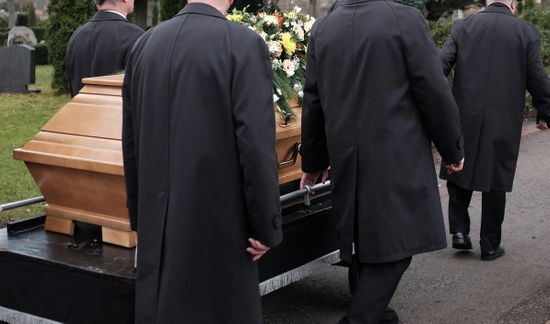
Last year, the average cost of a cremation in the UK was £3,795**. This price includes the help and organisation of a funeral director, collection of the deceased, doctor’s fee, minister's fee, viewing of the deceased, cremation fee, a basic coffin, hearse and a simple service.
Cremation costs can differ depending on the provider. Explore our comparison of direct cremation costs, or compare funeral plan costs to find out more.
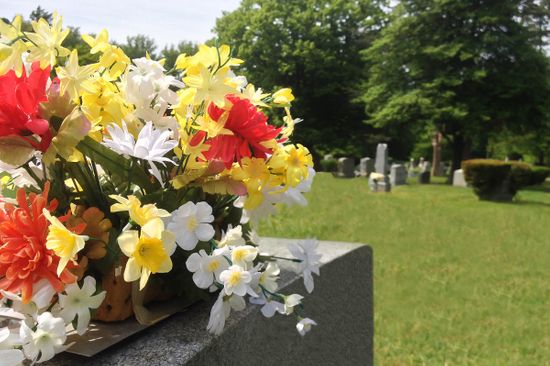
The average cost of a UK burial in 2023 was £5,077**. Similar to a traditional cremation, a burial includes the help and organisation of a funeral director, collection of the deceased, doctor’s fee, minister's fee, burial fee, a basic coffin, hearse and a simple service.
Additional features, like a headstone and flowers, are usually not included in the initial cost of the burial, and can take the overall cost further up into the thousands.
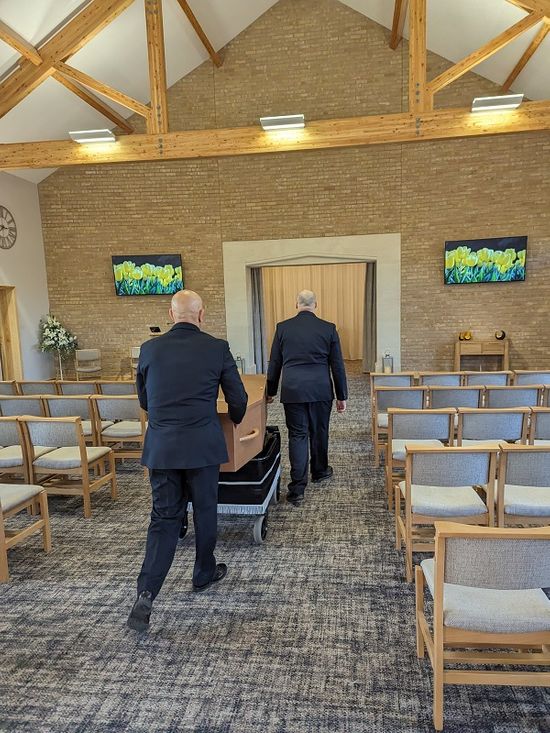
Direct cremations offer the most affordable funeral option when compared to both traditional burials and cremations with a service. The average cost of a direct cremation in the UK is around £1,597**.
At Distinct Cremations, our direct cremations start at just £1,350, which take place without a service and attendees. The price includes 24/7 support, collection, mortuary care, a classic coffin and the cremation itself.
** The average cost of funeral, cremation and burial in 2024, (SunLife Cost of Dying Report 2025, sunlife.co.uk/funeral-costs)
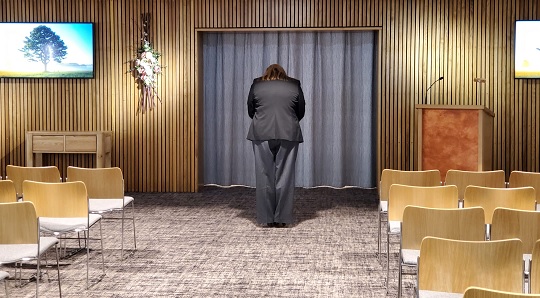
The cremation process is a delicate and respectful method of handling the remains of a loved one. Here's a step-by-step summary:
Before the cremation process begins, the coffin is brought to the crematorium and placed on a raised platform. Any personal belongings are removed from the deceased, and the body is placed in a simple, combustible container such as a wooden casket.
Following a service, the coffin is then ‘committed’ for cremation. The way in which committal is carried out depends on the crematorium. Some may close curtains and others may close a small set of doors around the coffin.
Once the committal has taken place, the deceased will be taken into a private area to be cremated which will take approximately two hours. The ashes are placed in a temporary container or an urn selected by the family. From there, the family can then choose what to do with them. Many choose to scatter the ashes in a place of significance, or memorialise the ashes into sentimental items, like jewellery.
Once the cremation has taken place, family and friends are able to celebrate the life of their loved one in any way, and at any time. One of the perks of cremations is that you’re not tied to a rigid schedule, and the ashes can be hand-delivered to you in an urn. This allows the loved ones left behind to come to terms with their grief in their own time, finding solace and providing extra support for those who need it most.
A burial usually takes place as part of a wider funeral service, bringing an end to the ceremonies. Here’s what’s involved:
Following the passing of a loved one, their body is washed and dressed, often in clothing chosen by the family or according to cultural customs. Embalming, a process of preserving the body using chemicals, may also be performed to delay decomposition.
On the day of the burial, mourners gather for a funeral procession, which may include a religious or secular service. The casket is typically transported to the burial site in a hearse, accompanied by family members and friends.
A burial service takes place after the main funeral service. At a burial service, the coffin is lowered into the ground, and mourners typically scatter handfuls of soil over it to signify committal. Flowers are also sometimes thrown into the grave alongside the soil. Once the service has concluded, friends and family leave floral tributes before gravediggers begin filling the grave.
After the burial, people often come together for a wake, which is a gathering where friends and family share a meal or reception to celebrate the life of the person who has died. It's a time for sharing stories, comforting each other, and remembering the life that was lived.
When choosing between cremation and burial, it’s important to consider how you want to remember the person after their final farewell. Because cremation and burial handle remains differently, there are key distinctions in how you can memorialise the deceased.
For burials, the remains are buried at a dedicated plot of land. Headstones are a common choice to memorialise your loved one. However, alternatives such as benches, statues, and trees are also available.
For cremations, the ashes can be returned to the family. With the memorial's location not bound to a grave, families can choose what to do with the ashes. Many decide to scatter the ashes in a place of significance. You may also opt for a plaque, plant the ashes alongside a memorial tree, or even use the ashes to create sentimental jewellery.
Deciding whether cremation or burial is better for the environment depends on various factors. For example, if you’re expecting a lot of mourners to attend there’ll be the impact of travel that needs to be considered as well as the cremation or burial itself.
But just considering the cremation or the burial alone, the environmental impact differs quite noticeably between the two. Here's a breakdown:
Cremation is beneficial in reducing land usage, as it eliminates the need for burial plots and extensive cemetery spaces. It also requires far fewer resources, such as removing the need for more elaborate caskets and ongoing land maintenance.
However, the cremation process produces high levels of CO2. To address this, steps are being taken to ensure cremations become more environmentally friendly.
In fact, our own Sirhowy Valley crematorium, recently became the first crematorium in the country to adopt a new Federation of Burial and Cremation Authorities (FBCA) policy dedicated to minimising the environmental impact of cremations. All crematoria in our network also follow these guidelines.
Burials come with their own set of environmental challenges. The chemicals used during the embalming process are carcinogenic and when the body is buried, these chemicals can potentially leak into the surrounding area.
Although embalming is not always carried out before a burial, other elements such as the carbon footprint of the coffin and tombstone production should also be considered.
We are continuously exploring ways to minimise our carbon footprint, enabling you to arrange a funeral with confidence in its environmental impact. Through our partnership with Greenr, we offset our unavoidable carbon emissions by investing in initiatives like renewable energy projects.
We are committed to ensuring that by 2032, all of our crematoriums will be equipped with mercury abatement and nitrogen oxide (NOx) filtration systems to mitigate air pollution and contribute to a cleaner environment.
Religious beliefs are also a large influence when deciding whether to have a burial or cremation for the deceased. Some religions have specific views on how the body should be laid to rest after death while others allow both cremation and burial amongst its followers.
Both burial and cremation are acceptable within the Buddhist faith, however cremation is considered the more traditional option. When David Bowie died in 2016, he opted for direct cremation and had his ashes scattered in Bali in accordance with Buddhist tradition.
Historically, cremation has been considered blasphemy in most Christian denominations, especially Catholicism, as it was considered to be a representation of the rejection of resurrection, which the body was necessary for. However, this is now considered outdated, with most Christian faith groups accepting cremation.
Within Islam, funeral rights are prescribed by divine law. The preparation and burial of the deceased following a death is considered a sacred duty, with strict guidelines for the body to be buried intact with minimal interference after death. As a result, cremation is considered a desecration of the deceased by many Muslims.
Cremation is commonplace within the Hindu faith apart from when infants or saints pass. According to Hindu death rituals, the deceased should be cremated within 24 hours of death as cremation is believed to be the quickest way to release the soul from the body and aid their reincarnation.
Depending on the branch of Judaism followed, cremation may or may not be allowed. In the Jewish Orthodox faith, it’s believed all bodies should be buried in the ground, disallowing cremation. However, non-Orthodox Judaism accepts cremation and is an ever-increasing choice amongst its members.
Cremation is the preferred option for Sikhs as similar to Hindu beliefs, the cremation assists in the release of the soul from the body. Although burial is accepted if a cremation can’t take place.
At Distinct Cremations, we take care of all the arrangements. We arrange the funeral, collect the deceased, make sure all paperwork has been filled in correctly, carry out the cremation and scatter or return the ashes.
With expert guidance on-hand 24 hours a day, 7 days a week, our customer service and funeral teams at Distinct Cremations will help with all your funeral arrangements as you need them, when you need them.
Funeral planning is never an easy task, but our team can help ease the load.
We’re here for you 24/7. You can call us on 0808 134 5865 before a passing to give you and your loved ones time to prepare or you can call us when the time comes. All we need from you is some basic information to start getting your cremation arrangements in place.

Our caring team will collect the deceased from anywhere in the mainland UK, whether your loved one is at home, in a care home or at a hospital. The deceased will be then taken to our professional mortuary facilities before cremation.
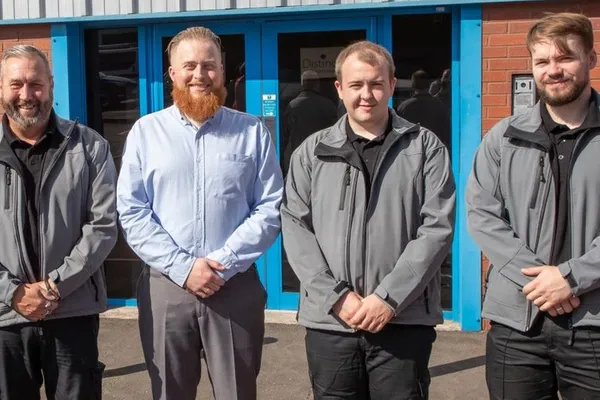
We will prepare your loved one for cremation, bathe them, remove any artificial items and dress your loved one upon request. We will then lay them to rest in the coffin, transport them to the crematorium and we will inform you of the date of cremation.
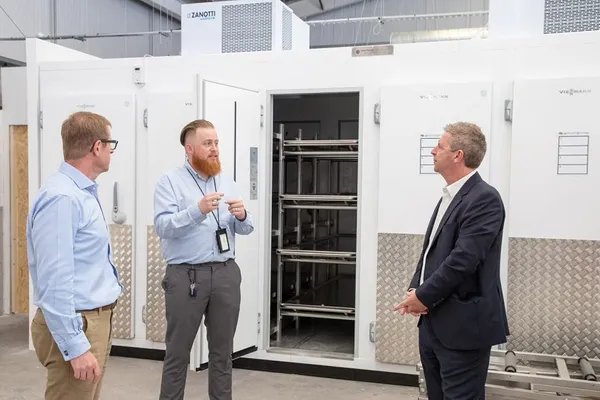
The cremation will take place at one of our 42 crematoriums in the UK. The coffin is taken through the front door, rested on the catafalque while a song of your choice is played or a moment of silence is respected, then the cremation takes place.
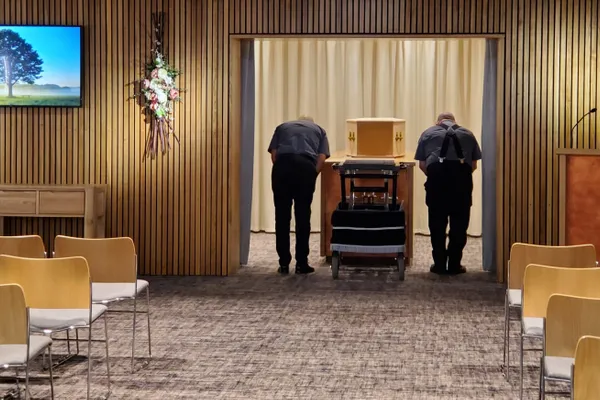
The ashes can be scattered in the garden of remembrance at the crematorium or hand-delivered back to you within 14 days. You may then like to arrange a memorial service or celebration of life to toast the life of your loved one.
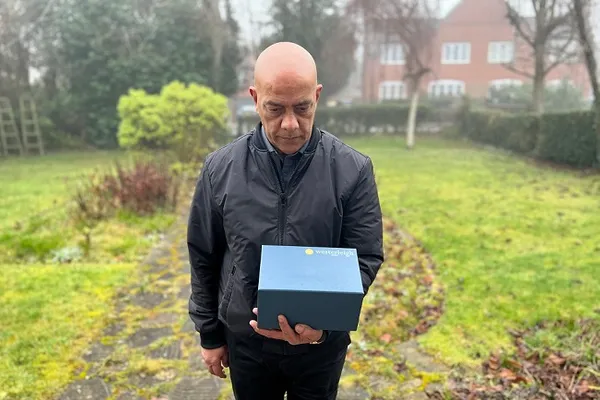
Whether you're wanting to arrange a funeral today, planning for the future, or looking for something else, our customer service specialists are here for you 24/7 to answer any questions you may have.
Below are a few further articles that you may be interested in.

Alternatives to a traditional funeral have become much more popular in recent years. In this article we outline the different options available and why people are opting for something a little bit different.
Alternatives to a traditional funeral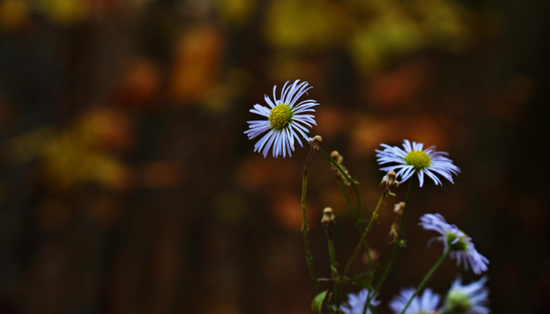
At Distinct Cremations, we provide no fuss funerals which are simple to arrange, affordable and delivered with care, dignity and respect. Prices start from just £1,350 if you need to arrange a funeral today.
Arrange a funeralWe offer the highest level of support, but don't just take our word for it. Below are recent reviews from customers who bought a funeral with us.





